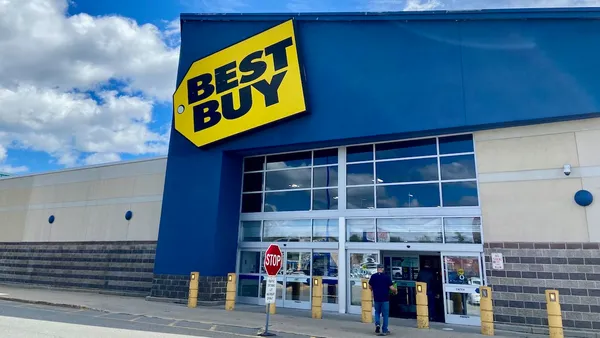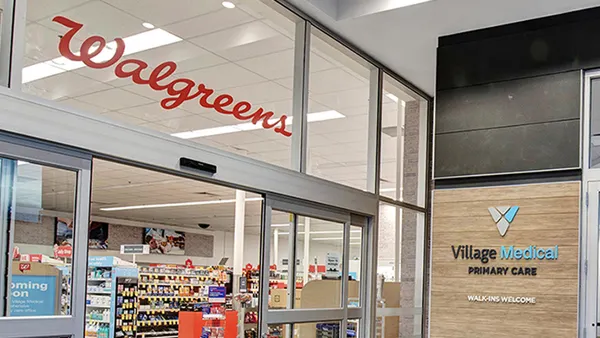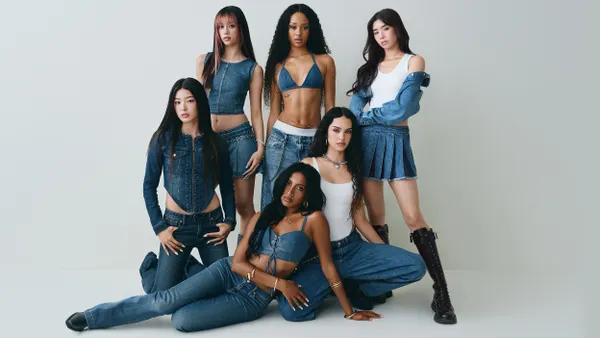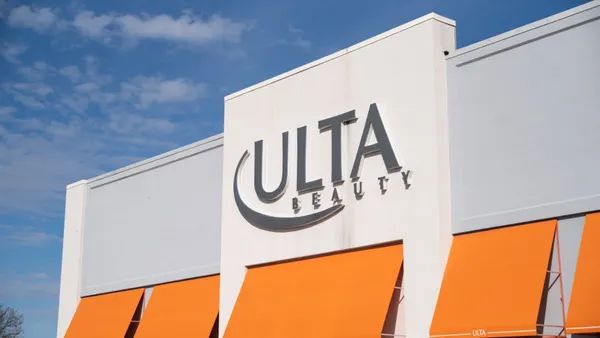Highlights
Biggest brag:
Launching eight new private label brands and opening 28
new small format stores in 2018.
Biggest move of the year:
Same-day delivery via Shipt nationwide by the holidays.
Outlook:
Within a year and a half of Target's announcement to invest $7 billion into brick-and-mortar and digital efforts, it has transformed a string of quarterly declines into record-setting traffic and sales growth figures. As Target looks to narrow the gap with rivals Walmart and Amazon, it's banking on its "cheap chic" ethos in private label, convenience in delivery options and smaller, locally curated stores.
Target's aggressive business strategy this year has catapulted the mass merchant from a turnaround story to the top of the retail food chain. That's thanks in big part to investment in three key areas: private label, small-format stores and delivery. Initiatives in each of these areas have helped reinvigorate the company's overall "cheap chic" Tarzhay appeal, especially among urban millennial consumers. They've also helped build up competitive advantages against rivals Amazon and Walmart.
Last year marked the start of heavy capital spending for Target after CEO Brian Cornell announced $7 billion slated for store and digital improvements over the course of several years. And those efforts are beginning to pay off. In May, Target reported that traffic to stores grew 3.7% – the strongest quarterly growth in over 10 years. Then in August, traffic jumped 6.4% – which the company said was the strongest traffic since the company began reporting traffic 12 years ago.
In turn, sales are setting new records too. Comparable sales in the second quarter increased by 6.5% – the best comps in 13 years – while digital sales grew 41%. In the third quarter, comps slowed slightly to a 5.1% lift, but digital sales grew 49%. "It's our stores that are enabling our digital growth and strategy," CEO Brian Cornell told Retail Dive at a media event in October.
For a traditional brick-and-mortar retailer like Target, which still depends on foot traffic to drive the bulk of sales, efficiencies have to start in the store. Target stores are being redesigned with two customers in mind: First, those who want to get in and get out as quickly as possible, and secondly, those who want to linger and discover new brands. In an effort to cater to the former, Target has ramped up buy online/pickup in store and Drive Up services, which aim to fuse digital and physical in a way that's convenient for different types of customers. Target aims to offer its curbside pickup program Drive Up in 1,000 stores before the holidays.
By the end of the year, Target will roll out 28 small-format stores in urban, suburban and college campus communities. Roughly 130 will be open by the end of 2019. The limited assortment (tailored to local needs) at these stores touts many of the company's best selling private label brands – like Cat & Jack and A New Day – as well as exclusive partnerships with the likes of mattress upstart Casper, the Hunter boot brand and celebrity cookbook author Chrissy Teigen.
Delivery options are also a key part of narrowing the convenience gap with Amazon. Thanks to Target's acquisition of Shipt late last year, it has made good so far on a goal to expand same-day delivery of groceries and home essentials nationwide by the holidays. Target's same-day delivery powered through Shipt is available in 46 states and in hundreds of markets. The company also now lets shoppers at some stores browse and buy in-store, while having their purchases shipped to their home for a flat fee.
Over the last year, Target has shown the industry that it's possible for big-box retailers with sprawling store fleets to adapt to the modern demands of customers. But as it morphs into Target 2.0, it's not leaving its essential playbooks behind. Instead, its doubling down on them.
In the most obvious example, Target has long depended on trendy apparel and home goods private labels to differentiate its assortment from other mass merchants. So far this year, Target has launched eight new private label brands, notably including denim label Universal Thread, modern home decor brand Opalhouse and competitively priced consumer products brand Smartly.
Collectively, the new brands propel Target's mission for the illusion of constant freshness and discovery. And overall, the company's customer-first look and feel is a positive case study showing how some of the biggest retail players can pivot without losing their core customer.
Read More
-
At Target, it's the year of 'acceleration'
By Corinne Ruff • March 7, 2018 -
A peek inside one of Target's newest small-format stores
By Corinne Ruff • March 8, 2018 -
Target's $550M purchase of Shipt buys time and talent
By Daphne Howland • Dec. 19, 2017
Update: According to revised store information provided by Target, the big-box retailer opened 28 small-format stores in 2018.














